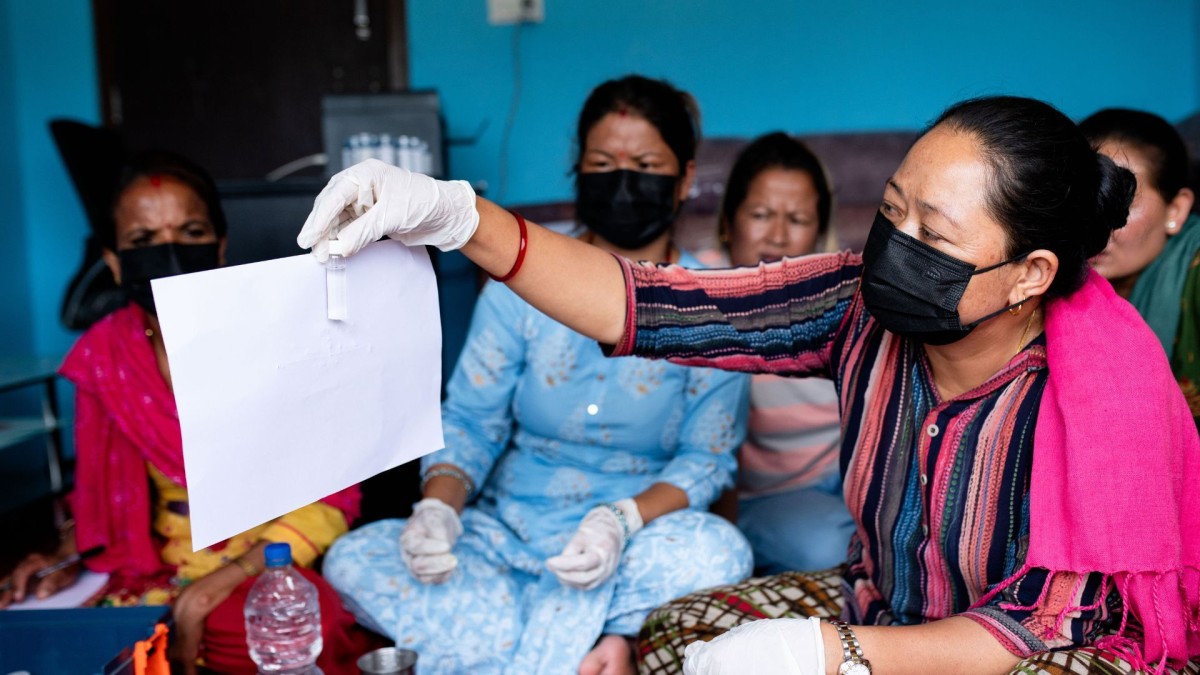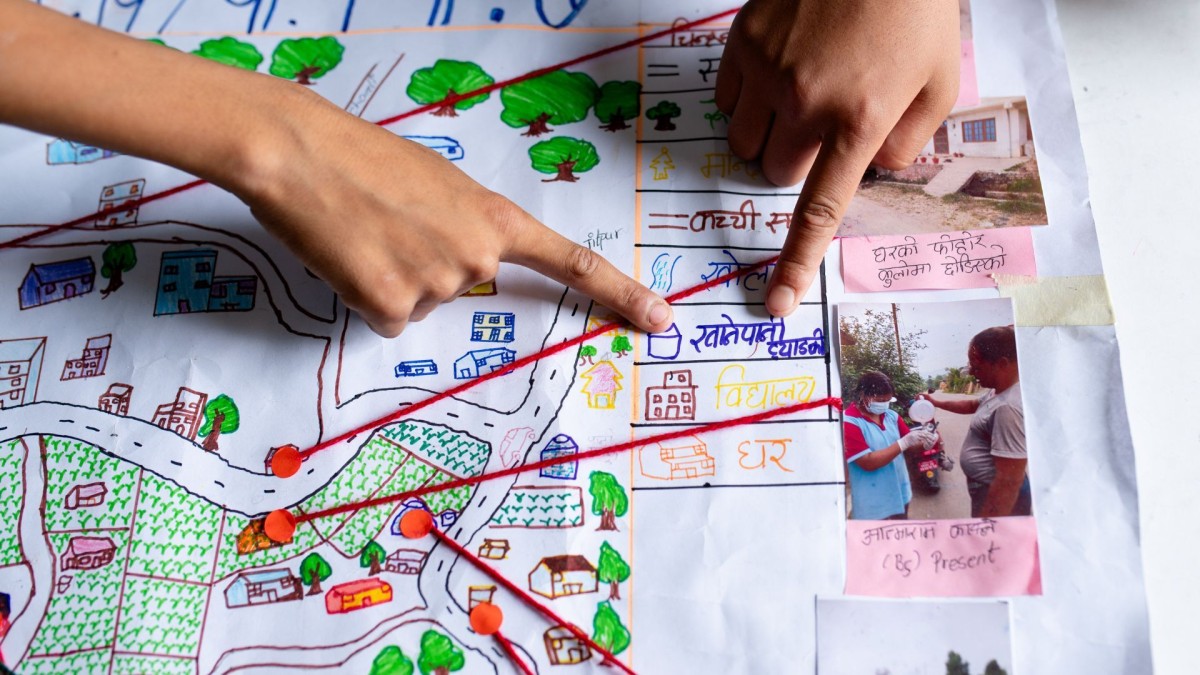Sarwacha Programma: the first year of a Public–Private–People Partnership (4P)
The Sarwacha Programme is special in that it brings together local governments, the private sector and the community to work towards a robust system that guarantees safe water to all. Merina Maharjan and Bivor Maharjan, both programme officers at ENPHO, believe it’s the only way.
Safe water from the tap for everyone in Changunarayan, a fast-growing municipality in Nepal with almost 60 thousand residents, is the goal of the Sarwacha Programme. This goal seems simple, but the programme, in which the Nepalese organisations ENPHO and Biruwa are working together with Simavi and Dopper, is quite complex, involving many stakeholders and activities.

Contaminated water
Many of the local water supply systems in Changunarayan have a high risk of contamination with E. coli bacteria. Because water supplies are often interrupted and inadequate, families - especially from marginalised groups - are drinking contaminated water, often without being aware of the poor quality of the water and the associated risks.
That is why the Sarwacha Programme is built around the 4P approach: Public-Private-People Partnership. We have seen before that programmes which focus solely on communities or governments fail. The Sarwacha Programme is unique in that it engages with communities, entrepreneurs and governments simultaneously. We build alliances between them, work on social inclusion and strengthen the capacity of the government.

‘Families are often not aware of the poor quality of the water and the associated risks’
Year 1 of the Sarwacha Programme started on 15 September 2023, with the official kick-off with the municipality of Changunarayan. One of the first successes was the municipality’s commitment to contribute 20 per cent of the total project budget. In the months after the kick-off, baseline surveys were conducted at over 600 households, 20 water user committees, 18 elementary schools and 16 secondary schools. In total, 9 thousand residents will directly benefit from the programme.
Working with communities
Training sessions were provided to municipal focal persons and water user committees on water quality monitoring and promoting safe water practices. We also collaborated with the municipality on drafting WASH regulations. Equally important was our work with communities, schools and health professionals because reaching our goal is impossible without their cooperation, knowledge and ownership. A good example are the activities in schools. Children are testing the water quality in their schools to identify contamination. They use this information to advocate to water user committees and even present their issues to the municipality.

At the community level, we are setting up Self Help Groups for women, open to everyone, including marginalised groups such as the Dalit and the Sukumbasi. These women’s groups are given the opportunity to test the water quality and have proven very eager to use this information to pressure water user committees into addressing their issues. We aim to register these groups with the municipality so they can apply for funds, and we are exploring ways to provide them with opportunities to generate some income from their activities.

‘We build alliances between communities, entrepreneurs and the government’
At the municipal level, our goal is to ensure the monitoring mechanisms specified in the national WASH Act are implemented by the local government. That’s why we are developing monitoring guidelines and advocating for a monitoring body in the municipality, supported by a mini lab for water testing. A mechanism for systematically handling complaints will strengthen the governance of water user committees and empower water users. Finally, involving the private sector can help to offer better services to the communities and to match public funds for water and sanitation.
Challenging year ahead
The ambitions for the second year of the Sarwacha programme are high. At the municipal level we will establish the mini lab, including an operational and business plan, and continue working on the Water Safety Plan. This will include better water treatment, protecting natural resources, and promoting water conservation. At the community level, we will identify and train volunteers for door-to-door visits for safe water campaigning and monitoring water quality. It promises to be a very exciting and challenging year.
Merina Maharjan, programme officer at ENPHO and Bivor Maharjan, young expert programmes at Simavi and programme officer at ENPHO




